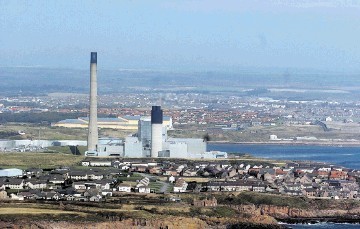
MPs on the soon-to-be-disbanded energy and climate change committee have urged their successors to keep making the case for carbon capture and storage.
In their final report, members said they hoped the pressure on the UK Government to set out detailed plans for the next steps for the technology would be maintained.
Last year, the Conservatives were accused of wasting an opportunity to secure an alternative future for the North Sea by axeing £1billion of funding.
Plans to build a ground-breaking CCS plant at Peterhead came to a halt following the 11th hour news that the development money would no longer be available.
It prompted an inquiry by the committee, which concluded that pulling the plug “without warning” was damaging to both the relationship between the government and industry, and to investment into the UK.
It also urged ministers to devise a new CCS strategy.
This week, Angus MacNeil, chairman of the energy committee, described the move as “regrettable”, adding: “If people actively want to reduce carbon, CCS is probably the only way to do it.
“The more work that goes on, the cheaper it will become as well.”
He also raised concerns that energy policy would no longer be properly scrutinised after Theresa May scrapped the Department for Energy and Climate Change upon becoming prime minister.
Its brief was moved to the new Department for Business, Energy and Industrial Strategy (BEIS).
To reflect that change, the Commons business committee has been expanded to include energy.
Meanwhile, Mr MacNeil’s committee is being wound up on Monday and the SNP MP for the Western Isles said he feared something would have to “give”.
Asked if he was worried the energy brief could end up being neglected, he replied: “Yes, most definitely.”
Northern isles MP Alistair Carmichael warned of a “real danger that energy policy will fall of the government’s policy agenda completely”.
The former Scottish secretary added: “Without a select committee to keep up the pressure in the Commons it will be more difficult to stop that.”
A BEIS spokesman said: “The costs of CCS must come down if it is to play a part in the long-term decarbonisation of the UK’s economy.
“We will need a range of technologies as we create a clean energy future but above all we must ensure they are affordable.”
Recommended for you
